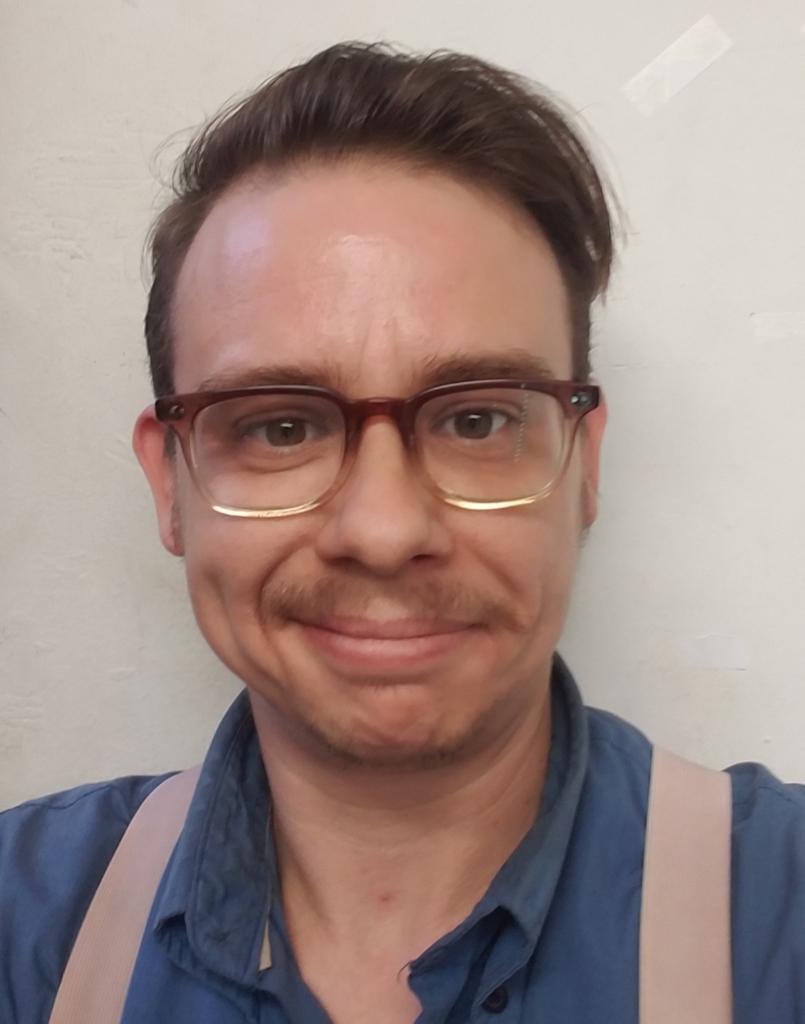
A Philadelphia Coast Guard veteran journey to manhood: Nick Greiner
In a year that saw a military ban, a veteran talks about his experience in the force and redefining gender roles.
Ever since I was a little kid, I wanted to help people, make a difference and serve my country. Today, I am a proud veteran of the Coast Guard.
No disrespect to other branches. We all had a hero complex, but I wanted to make a difference without involving any guns in the equation, and the Coast Guard was the best place to save people, for the most part.
“Always ready” is our motto. We search and rescue just like Alexander Hamilton intended it to be.
On the 50th anniversary [of World War II] we were part of the crew of the Barque Eagle—a ship that was used by the Germans to train sailors and was given to the U.S as a war prize from Hitler—when a hurricane happened. Climbing up the pole and a rip sail, it was just an incredible experience.
Most of the time, I just happened to be in the right place at the right moment, like in Japan. My crew and I were sailing in international waters when we spotted a drift fishing net from a mile away. Also known as the curtain of death, they destroy plant life, animal life, and everything that gets caught.
It's a very much illegal, even in international waters, but the owners weren't flying a flag, so we couldn't just stop them with force. It was a group effort and I was part of the group that figured out how to track them so we could get a sample of their net, as evidence to bring them to court.
We used an SOS beacon that sends off a signal, so we could track that at the same time and go back and get a piece. We ended up chasing them all the way down to Japan.
I love the Coast Guard for everything it gave me and the places I was able to see with them.
Twenty years ago, I came out as a lesbian under the “Don’t ask, don’t tell” policy.
That was a terrifying prospect because I loved what I was doing, and I had already seen women being kicked out for being gay, so that was tough.
But there was one thing I had not allowed myself to explore there, or even before, and it was a long time coming. I honestly didn't know that the possibility of transitioning, at least from female to male, was something I could do.
When I was diagnosed with narcolepsy and had to leave the Coast Guard, I swore I would never hide who I was ever again.
By that point, I was 39, almost 40 years old, and the person I had been with for eight years, the one who saw me for who I was, wasn't there anymore. Everything suddenly changed.
I realized that I needed to be able to see myself, that seeing myself through somebody else wasn't enough anymore.
Looking back, I was pretty adamant about the fact that I was a boy and kept putting myself with the boys since I was a little kid. But I did not want people to look at me like I was stupid, so I thought the best thing to do as a smart kid would be to stop trying to tell people who I am.
Not knowing there was any other option, I came out as a lesbian. That community embraced me, and for that, I will forever be grateful.
But to be honest, the ones who are close to my heart are transgender veterans. For decades, transgender people could not serve their country. Finally, in 2016, the Pentagon was okay with having trans people serve openly in the military. That was like turning a massive ship in the middle of the ocean.
Now the Trump administration says it hurts readiness. We have always been there, we have always saved.
Technically I was serving as a lesbian under “Don't ask, don't tell,” but I was still transgender.
That is the thing, people think that just because we transition we are completely different people. Do not get me wrong, I'm very different, but at the same time, I'm not.
Granted, we all come to a military career for different reasons, but imagine if we could reach our full potential inside the service. I am very proud of my service in the Coast Guard, and I think they are doing an amazing job.
So it is kind of an adjustment sometimes, but I wouldn't change a thing because my path gave me a different understanding.
It is a whole new world when society perceives you as a man. Trans men in a lot of ways have it so much easier than transgender women.
Testosterone is a very powerful thing and it is very difficult to undo. It works very quickly on the body, so despite being 5'2'', people don't question my masculinity. They don't seem to get angry at me when I try to go to the restroom.
RELATED CONTENT
Society is obsessed with mostly trans women. We don't give a thought to trans men. I bet you don't want to see me in a women's room, but you don't argue about it and definitely don't worry about me going into a men's bathroom.
Trans women are trying to become themselves just the way I am, but the way society perceives femininity and masculinity finds its way even into our bathrooms. And that deeply worries me, especially because I have a transgender mom, and I fear for her.
When we travel together and we need to make a restroom stop, I go into the men's room with the truckers and everybody else and don't even worry about my own safety. I just hope there is a stall with a door.
But then I quickly rush over to hang out outside the women's room, just to make sure my mom comes out okay and there are no incidents. There shouldn't be, but with this climate, you never know.
Those are the kind of things that don't hit you until they are right in your face. I don't know if most men have given a lot of thought to their gender, or the disparities between genders, but things sure look really different when you have been able to see things from both points of view.
Particularly when I'm out in the general community. From people who assume I am the owner of the store, and completely overlook the female owner, to realizing how crude “men talk” can be.
When I identified as a lesbian, I thought men were pretty open with me, but now that they just see me as another dude it is like, “Oh, you're one of us, so now I can drop this shield and I can say what I really think.”
And sometimes what they really think should have been kept locked up. Like, did you seriously just say that?
However, my interactions with men are not the only ones that have changed. When I am walking out at night and a woman finds herself alone on the same sidewalk as me, she will change sides, or worse, she will start walking faster.
I feel so bad for them! All I want to do is say, “Hey, it's okay, I know what its like to feel that fear, am not going to hurt you,” but of course I can’t do that.
Things have definitely changed in the last five years, but I truly feel like life is so much better now. I am better now.
Before, I wasn't entirely present in my life because I was so detached from my body. I wasn't a very good daughter or aunt, but I'm not so bad as a son and an uncle. I think it's because, when you are more present in yourself, you are more present in people's lives around you.
Despite the fact that we live in different states, my family has been extremely supportive. They mean the world to me. I love my mom, my biological father also has transitioned, and my sister has been fantastically accepting.
It is so nice to see everyone so comfortable with themselves and within our family. For now, I just want to be the best uncle I can be for my amazing niece and nephew, and give back to the community as much as I can.











LEAVE A COMMENT: